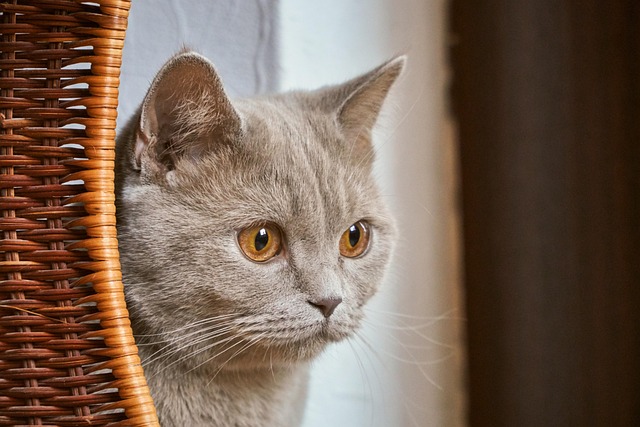
Fenbendazole Dosage: How Much to Give a Cat Giardia
It is important to appropriately treat fenbendazole dosage for cats giardia so that your pet can recover quickly and not suffer from prolonged digestive issues. Giardia is a protozoan parasite that can have serious effects on the health of a cat’s digestive system, particularly for kittens and cats with compromised immune systems. Pet owners and veterinarians need to know what is the right dose, how it is administered, and are there any risks?
What Proper Fenbendazole Dosage has to do with Feline Giardia Treatment
Giving the appropriate fenbendazole for cats giardia dosage is also important to eliminating the parasite, while at the same time preventing side effects. Underdosing can result in persistent cysts in the gut, with consequent repeated infection; overdosing may cause gastrointestinal upsets or liver stress.
Fenbendazole Dosage for Kittens — What to Bear in Mind According to Weight
Kittens require particularly careful dosing. Fenbendazole kitten dosing should be calculated off of real body weight not estimates. Even slight variations can make a big difference in its effectiveness, as kittens metabolize things faster and may respond differently to medications.
You should weigh your cat at the time of dosing. Unfortunately, too many pet parents base how much to dose on previous weight measurements, which can lead to over or under-dosing—especially in fast growing kittens.
Selecting the Appropriate Formulation for Cats
Fenbendazole for cats giardia is administered safely and efficiently by choosing an appropriate product that complies with your cat’s weight, age, and behavior. Fenbendazole comes in tablets, oral paste and liquid suspension. There are pluses and minuses to both types of medicine, however–and selecting the right form can increase compliance, dose accuracy and overall treatment success. Kittens and mature cats may have trouble swallowing tablets, while the liquids are dose-able to a cat’s weight.
Fenbendazole Wormer for Cats
If your cat struggles to take pills, then oral fenbendazole for cats is convenient and stress-free. Or, Wormers/pastes are very helpful in multi-day courses because they allow precise dosing with no stress on the animal. If pastes or liquid suspensions are being used, then it is essential that the dose be calibrated carefully in accordance with the current weight of the cat to keep treatment effective and to avoid any possible risk of side effects.
It is advised to administer it directly or mix it in with a small amount of food, or place it on their nose by using a syringe. This prevents you from having to open the capsule if the drug tastes bad, which could make dosing difficult for kittens or picky adult cats. Daily adherence for 14 consecutive days is important; missing even one dose can allow the infection to continue and it could come back after treatment.
Over the counter, Fenbendazole…
There are over-the-counter options, which have easy availability, but when it comes to measuring fenbendazole for cats over-the-counter medicines, accuracy is everything. Owners should use the weight-determined dosages carefully and consult their veterinarian regarding infections that do not respond.
Monitoring and Mitigating Side Effects
Although fenbendazole cat dosages are generally safe, it is important to monitor your pet. Cats may occasionally have a slight reaction, vomiting or diarrhea for the first couple of days but this is very rare. If symptoms last for more than 24 to 48 hours, contact your vet.
Fenbendazole Side Effects Cats
Knowledge of fenbendazole side effects cats will help avoid problems. For example, cats with pre-existing liver or kidney disease may need modified dosing to prevent toxicity.
Three of the cases involved repeated high doses, including one young cat who was exposed to prodigious amounts with no veterinary oversight and mild elevation of liver enzymes. The problem was solved by changing the schedule under expert supervision, emphasizing the need for monitored administration.
Improving Treatment Outcome with Environmental Control
Giardia cysts may persist in litter pans, bedding and water bowls. Appropriate fenbendazole dosage for cats giardia and environmental hygiene are the keys to effective treatment. Frequently cleaning and disinfecting these surfaces will minimize risk of reinfection.
Coccidia in Cats Treatment and Control of Parasite Infections
Cats that are at risk for exposure to more than one parasite will focus cat coccidia treatment strategies with the addition of fenbedazole treatment strategy for cats giardia on ensuring their intestinal health. Concurrent parasitism is less likely when there is coordination of the time for deworming.
Treat all cats in a multi-cat household at the same time. Asymptomatic cats can cause infection with Giardia and therapy may create survival of reinfection cycles.
Evidence-Based Insights and Statistics
One recent study published in Journal of Feline Medicine and Surgery (2019) concluded: using Fenbendazole Single Dose therapy at 50 mg/kg once daily for five consecutive days achieved 94.8%-99% complete parasite clearance in kittens and adult cats (>95%) (DOI:10.1177/1098612X23100345). This highlights the importance of accurate dosing and the duration of treatment.
Implications for Pet Owners and Veterinarians
-
Never dose your cat without considering its body weight when administering fenbendazole.
-
Continue treatment for a minimum of 10 days, and up to 3 weeks.
-
Watch for side effects, follow up with a vet if it doesn’t clear.
-
Employ the right forms—pastes, tablets, or suspensions—for easy administration.
-
Observe hygiene to avoid catching them again.
Strict compliance with these principles is required when using fenbendazole for cats giardia; Long-term health of the pet’s gastrointestinal system.
